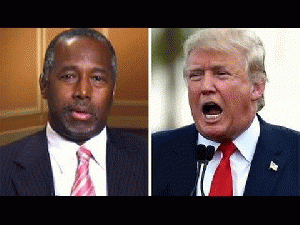For decades -- that is, for the entire modern political era -- anyone with a dash or two of sense could usually make a reasonable guess about who would win the Republican presidential nomination. It wasn't tough to pick the winner. The conventional choice -- the expected choice -- tended to triumph. And it was easy to foresee each cycle how that would transpire. But as the 2016 race enters the pre-voting homestretch, the Republicans have lost their obviousness. History seems to offer no guideline for what is to come. The party of predictability has flown off the rails. The model is broken.
With hindsight, past events often do seem to have a certain inevitability. Yet since World War II and the rise of modern-day, television-shaped politics, the quadrennial GOP contest has often been a rather easy-to-foretell affair. There's been a series of nomination battles in which the odds-on establishment favorites have won, while the Democrats have endured unpredictable fracases. John Kennedy (1960), George McGovern (1972), Jimmy Carter (1976), Michael Dukakis (1988), Bill Clinton (1992), and Barack Obama (2008) -- none of these ultimate big-D winners were the likely victor at the start. In fact, at the outset, they were largely dismissed or disregarded by the party's pooh-bahs. Democratic insiders of the time, for instance, assumed the Catholic Kennedy could not connect with non-Catholic voters. Each of these Democratic champs was a surprise.






